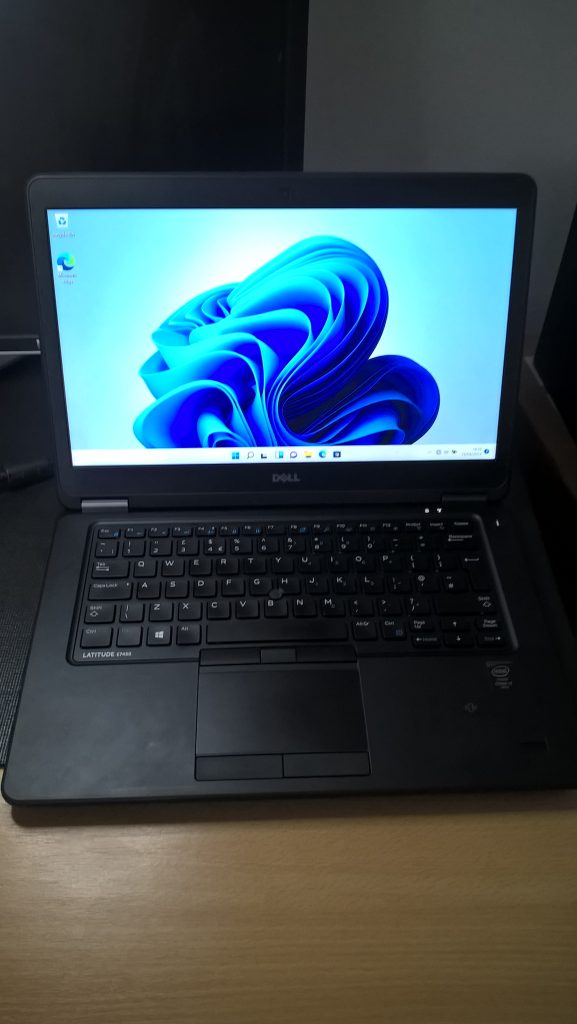Identifying Strange Sounds from Your PC: A Comprehensive Guide
In today’s fast-paced digital age, our personal computers have become essential tools for a variety of tasks, ranging from gaming to professional work. With high-powered components and intricate designs, modern PCs are indeed marvels of technology. However, like any machine, they are prone to issues that can result in unexpected behavior, including unusual sounds. Recently, a Reddit user posted about an unsettling noise emanating from their PC while playing “Marvel Rivals.” This anecdote raises an important question—what could be causing that noise, and how can we identify and resolve similar issues?
In this blog post, we will explore the various types of sounds your PC may make, what they could indicate, and the actionable steps you can take to address them. We’ll also discuss preventative measures you can implement to ensure your system runs smoothly.
Understanding PC Sounds: What Do They Mean?
When it comes to unusual sounds from your PC, it’s important to understand that different noises often indicate different problems. Your PC can produce a range of sounds, including:
- Humming
- Whirring
- Clicking
- Buzzing
- Popping
- Beeping
Each sound can provide clues about potential failures or needs for maintenance. Let’s dive deeper into some of the most common sounds and what they may signify.
1. Humming or Whirring Noises
When a PC emits a low humming or whirring sound, it is often a sign that the fans are working harder than usual. This could occur during resource-intensive activities like gaming or video rendering, as the CPU and GPU generate heat, prompting the fans to spin faster. However, if the noise persists or is accompanied by overheating, it could indicate:
-
Dust Buildup: Over time, dust can accumulate within the cooling systems, obstructing airflow. Cleaning the fans and heatsinks may resolve the problem.
-
Faulty Fan: If the whirring is out of the ordinary, it could be a sign of a failing fan. If the fan blades are damaged or the motor is malfunctioning, replacing the fan might be necessary.
2. Clicking Noises
A clicking sound can indicate several issues, especially if it is coming from the hard drive. If you’re experiencing a repetitive clicking sound while using your PC, here’s what to consider:
-
Hard Drive Failure: A series of clicks may indicate that the hard drive is failing. If you suspect this, back up your data immediately and prepare for replacement.
-
Loose Components: Clicking noises can also stem from loose screws or components that vibrate during use. Inspecting and tightening hardware may remedy the situation.
3. Buzzing Noises
Buzzing can indicate electrical irregularities or cable issues. This sound may arise from:
-
Power Supply Issues: A failing power supply may struggle to deliver stable power, resulting in buzzing sounds. In severe cases, a faulty PSU can damage other components, making prompt replacement crucial.
-
Coil Whine: Some graphics cards and power supplies emit a high-pitched buzzing sound under load, known as coil whine. While typically not dangerous, it can be annoying.
4. Popping or Crackling Sounds
Popping or crackling sounds are concerning and could signify serious issues, such as:
-
Electrical Shorts: If you hear pops or crackles that seem electrical in nature, it may indicate a short circuit or damaged components. Immediate action is essential to prevent further harm.
-
Speakers Malfunctioning: If the sound occurs during audio playback, it may be an issue with your speakers or audio hardware.
5. Beeping Sounds
A series of beeps when your computer starts can provide important diagnostic information. Most system manufacturers use beep codes to indicate specific hardware failures. Consult your motherboard’s manual for the interpretation of these codes.
Diagnosing the Problem
Now that we’ve explored the types of sounds your PC may produce, let’s discuss how to diagnose the problem if you encounter an unusual sound.
Step 1: Record the Sound
In the scenario that spurred this discussion, the user managed to record the bizarre sound coming from their machine. This step should not be overlooked. A recorded sound can help you better describe the issue to tech support or online forums, improving the quality of assistance and solutions.
Step 2: Isolate the Source
-
Listen Carefully: Try to pinpoint where the sound originates. Is it coming from the CPU area, the power supply, or the hard disk? Use your ears and a stethoscope (if available) to isolate the sound’s source.
-
Open the Case: If comfortable and under warranty, turn off your PC and carefully open the case to visually inspect components while listening for the sound.
Step 3: Testing Components
-
Run Diagnostic Tools: Many manufacturers provide diagnostic tools to test your system’s components. You can run these to check for errors or inconsistencies.
-
Check Hardware Connections: Loose or poorly seated connections can lead to sounds caused by vibrations. Inspect and reseat all hardware components and connections.
Step 4: Seek Professional Help
If you cannot identify the source of the sound or if it indicates a potential hardware failure, it’s advisable to consult a professional technician. Tools and expertise may be required to conduct tests that go beyond basic diagnostics.
Preventing Future Sounds from Your PC
Maintaining a functional PC requires ongoing care to prevent issues from arising in the first place. Here are essential tips to keep your computer running smoothly.
1. Regular Cleaning
Dust buildup is one of the leading causes of overheating and abnormal sounds. Regularly cleaning the inside of your PC case, including fans and heat sinks, can prevent many problems.
- When to Clean: Aim to clean your PC every 3-6 months, depending on your environment. If you live in a dusty area, more frequent cleaning may be necessary.
2. Monitor System Temperature
Using Software tools to monitor the temperature of your CPU and GPU can help you catch overheating before it becomes a problem. Several tools, such as HWMonitor and Core Temp, provide real-time temperature readings.
3. Sound Dampening
If you find that some sounds are purely cosmetic and you would like a quieter setup, you can consider sound-dampening materials or cases designed to minimize noise generation.
4. Quality Components
When building or upgrading your PC, invest in high-quality components, particularly for the power supply and cooling systems. Cheaper parts may save money upfront but can lead to issues down the line.
When to Replace Components
If all diagnostics point to a failing component that may be critical to your PC’s functioning, replacement may be the best option. Common components that may need replacement include:
-
Hard Drives/SSDs: These can fail, and it’s crucial to back up data and replace them if unusual sounds persist.
-
Power Supplies: If a power supply exhibits signs of failure, it can jeopardize all other components.
-
Fans and Coolers: Fans that become excessively noisy may need replacement; quiet, high-quality fans can prolong the life of the system.
Signs It’s Time to Upgrade
As technology advances, older systems may struggle to meet modern demands, especially for gaming or large data tasks. If diagnosing and maintaining your system becomes too frequent, it may be time for an upgrade.
Conclusion
Understanding the sounds your PC makes is integral to ensuring its longevity and performance. By recognizing different noises, adopting a systematic approach to diagnosing issues, and taking preventative measures, you can keep your system running smoothly and efficiently. Whether it’s a strange whirring sound when gaming or a series of beeps on startup, armed with the knowledge and tools to diagnose, you can ultimately maintain a healthy computer system and avert potential disasters. Remember, if in doubt, don’t hesitate to consult a professional. Happy computing!
Share this content:




Response to “Can someone identify this weird sound coming from my pc”
Hi there! It sounds like you’re experiencing some concerning issues with your PC. Based on the noises you’re describing, here are some steps you can take to troubleshoot effectively:
1. Identify the Sound
First, it would be beneficial to identify the specific type of sound. Is it a humming, clicking, buzzing, or beeping? Each of these can indicate different issues:
2. Record and Isolate
You mentioned a weird sound—have you had the chance to record it? A recording can aid in seeking help from tech forums or professionals. Isolating the sound source by using your ears or even a stethoscope can also help determine whether it’s emanating from the power supply, hard drive,